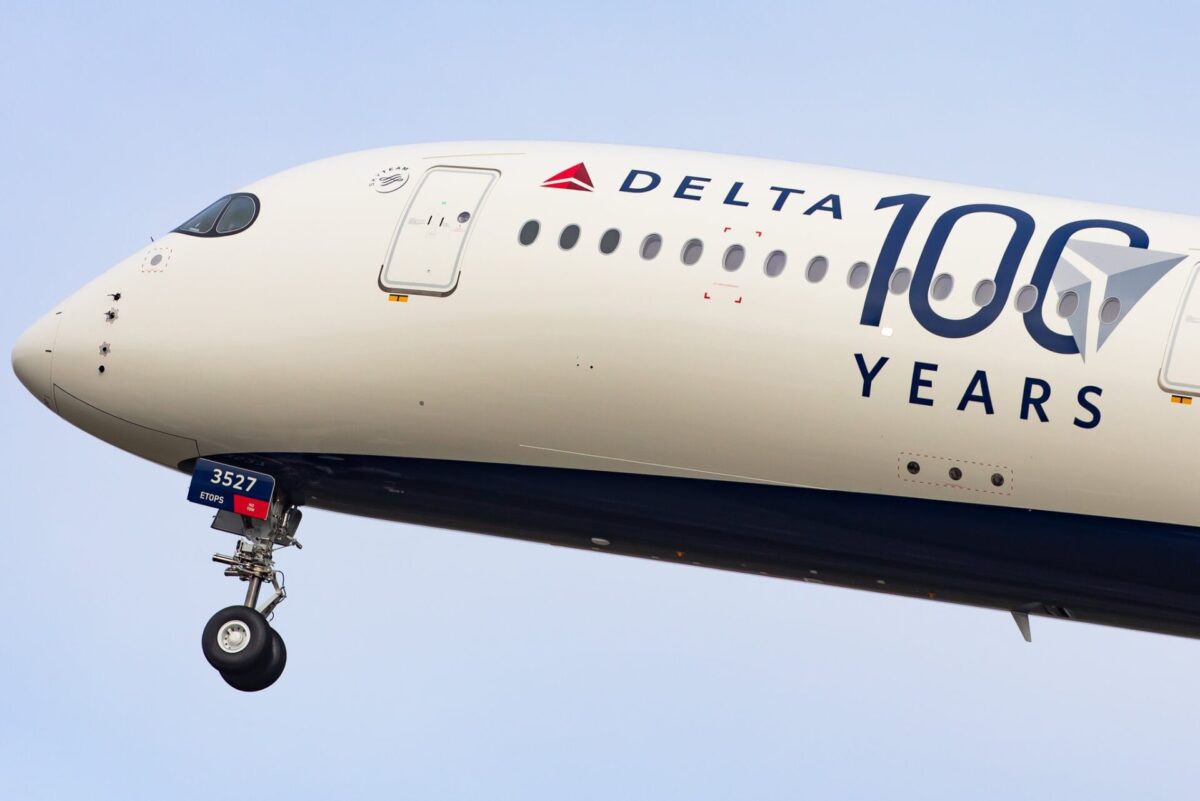Facing the threat of costly import tariffs imposed by the Trump administration in the US, Delta Air Lines has said it will be using tactics to avoid attracting additional cost when importing European-made Airbus aircraft into its fleet. Keen to avoid the 10% tariffs payable on European-made products entering the country, the Atlanta-based carrier stands to make significant savings by using imaginative means to avoid (rather than evade) paying the costs due for accepting delivery of new Airbus planes.
The strategy to be employed by Delta to work around the tariff structure imposed on European imports to the US involves re-routing new Airbus planes on delivery via an intermediary country – the reason being that the tariffs are only payable on ‘new’ products rather than used ones. The US defines a new aircraft as one that has not flown operational flights other than production tests or direct delivery flights. The Trump administration defines new aircraft in very narrow terms, which means that airlines like Delta have to work around the restrictions to avoid additional costs.
If a newly constructed airplane operates a revenue flight outside the European Union before arriving in the US, it no longer meets the definition of a new import, thereby avoiding tariffs, says the airline. If a commercial aircraft is produced in France, for example, and is then flown on a delivery flight to a third country before arriving in the US, it is no longer deemed to be new and therefore does not attract the 10% levy on imported goods, says Delta.
This is exactly the loophole to be exploited by the airline when it receives its latest Airbus A350-900 from Airbus on 30 April, 2025. The aircraft, registered as N528DN, is due to be delivered from the planemaker’s final assembly line in Toulouse, France, on that date. However, unlike other A350s received by the carrier, which were routed directly from Toulouse to Atlanta, where Delta is based, the aircraft is scheduled to fly from the French airport to Tokyo-Narita Airport (NRT) instead before heading to the US.
The tactic effectively means that the Toulouse to Tokyo leg (flight number DL9936) becomes the delivery flight. The next leg, presumably, will be operated as a live commercial flight from Tokyo to one of Delta’s US hubs, and essentially, when it first arrives in the US, it will no longer be a new aircraft as it has operated that revenue service to get there.
Delta says “no to tariffs”
Ed Bastian, Delta Air Lines’ CEO, recently confirmed to investors that the airline would not be paying import levies on any upcoming Airbus deliveries, using international routings and legitimate international revenue operations to comply with legal regulations while managing to maintain the carrier’s fleet expansion plans. Delta further avoids attracting tariffs on these widebody aircraft by deploying them exclusively on international routes, thereby not basing them in the US (unlike domestic, short-haul aircraft), which might attract tariff charges if they did so.
While taking deliveries of new A330-900neos and A350-900s from Airbus, the carrier is also due to accept new A321neos from the manufacturer, and it remains unclear how the airline will avoid paying tariffs on these narrowbody planes. According to ch-aviation, the airline has a further six A330neos, 8 A350-900s, and 20 A350-1000s on order from Airbus, alongside another 82 A321neos.
The airline’s other new aircraft are largely made either by Boeing (a US-based company) or by Airbus, based in Mobile, Alabama, in the case of its A220 fleet. As both US-made products, neither of these attracts any form of tariffs, fortunately for Delta. While aircraft parts and equipment imported into the US for these planes separately might still face charges, complete aircraft built domestically are unaffected.
Furthermore, some of Delta’s A220s are being completed at Airbus’ Mirabel plant in Canada and will be subject to any US-Canada tariffs that have been imposed. In this case, analysts expect Delta to fly these aircraft from Canada to intermediary points in Mexico or the Caribbean, to ensure that, like the new A350, they enter revenue service before they enter the US, thereby avoiding tariff charges.
Delta CEO Ed Bastian has consistently reaffirmed that Delta will not absorb tariff costs. While he (and the airline) remains adamant that no tariffs will be paid on new aircraft, it will be up to the airline’s scheduling and fleet planning departments to ensure that all new aircraft built in Canada and Europe operate their first revenue service outside of the US to comply with the rules and avoid costly additional import duties.




